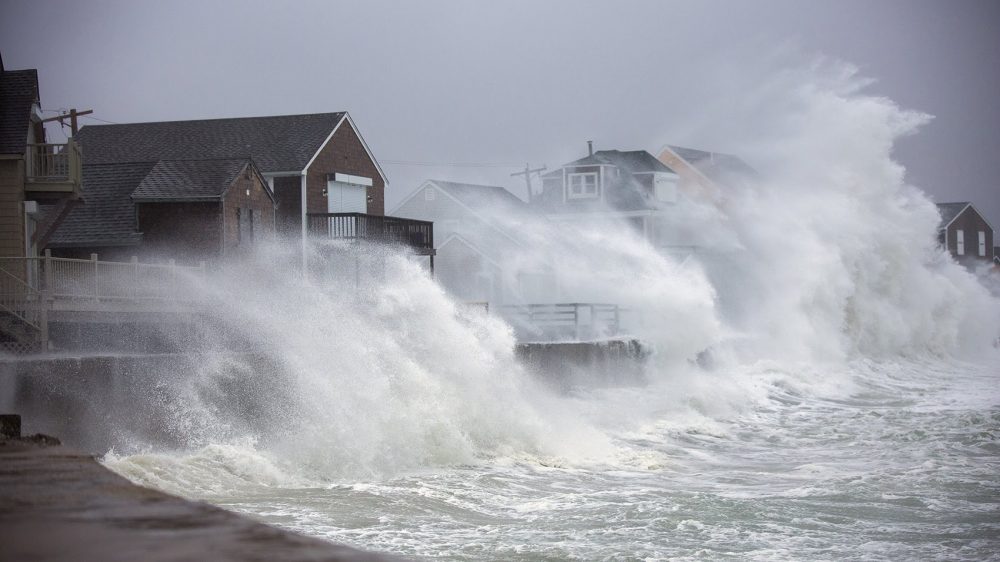NENC/America Amplified Special: What The Biden Administration Will Mean For Climate Change In New England

On average, the sea level has risen 8 inches along the New England coast since 1950, and that trend is expected to accelerate due to climate change. During a nor’easter in March of 2018, houses along Lighthouse Road in Scituate, Mass. were engulfed by waves crashing off the seawall. (Jesse Costa/WBUR)
Severe storms. Heat waves. Rising seas. New England is already seeing the impacts of climate change, and scientists project they will become more severe and deadly, shaping how we live and work in the northeastern U.S. This week on NEXT, in a special ahead of Inauguration Day, the New England News Collaborative and America Amplified look at climate change in our region and how President-elect Joe Biden’s administration could affect climate action in the future. Biden has proposed the most ambitious climate platform of any incoming U.S. president in history.
Premieres: January 14, 2021
“By mid-century, if we don’t have a significant cut in heat trapping emissions, we can expect extreme heat to rise here in the Northeast,” said Rachel Cleetus of the Union of Concerned Scientists.
Those impacts would worsen inequities of climate change that disproportionately affect low-income communities and communities of color, Cleetus said. “This is one of the most insidious and unjust aspects of how climate change is coming to bear.”
And we heard from listeners and residents across New England, such as Dan Pratt of Massachusetts, who told us how climate change has already affected their lives.
“I prefer the term ‘climate chaos’ to describe what I am experiencing as a certified organic farmer in Western Massachusetts,” Pratt wrote. “Increasingly unpredictable and severe first and last frosts, more aggressive precipitation events and wilder temperature swings within any growing season make it increasingly difficult to grow food in our region.”
Guests:
Rachel Cleetus, policy director for the Climate and Energy Program at the Union of Concerned Scientists.
Leah Stokes, assistant professor in the Department of Political Science at the University of California, Santa Barbara and the author of Short Circuiting Policy: Interest Groups and the Battle Over Clean Energy and Climate Policy in the American States.
Chris Williams, New Hampshire resident who moved from Alabama, in part, due to climate change.
Elizabeth Fussell, associate professor of population studies at Brown University.
Resources:
- The Fourth National Climate Assessment, “The Northeast”
- The New York Times, “Biden Pledges Ambitious Climate Action. Here’s What He Could Actually Do.”
- NHPR’s Outside/In podcast episode, “Climate Migration”
- U.S. Environmental Protection Agency, “Climate Resiliency Screening Index”
- ProPublica, “Climate Change Will Force a New American Migration”
Check this link to find out when your station airs NEXT.
Credits:
Hosts: Morgan Springer and Traci Griffith
Producers: Morgan Springer, Lily Tyson, Lydia Brown of Vermont Public Radio and John Dankosky of America Amplified
Executive Editor: Vanessa de la Torre
Music: “TracPhone,” “The Samo,” and “One Call Away” by Latrell James.
Additional support: Connecticut Public, New England Public Media, Vermont Public Radio, Maine Public Radio, New Hampshire Public Radio and CAI Cape and Islands. America Amplified and the New England News Collaborative are funded, in part, by the Corporation for Public Broadcasting.
